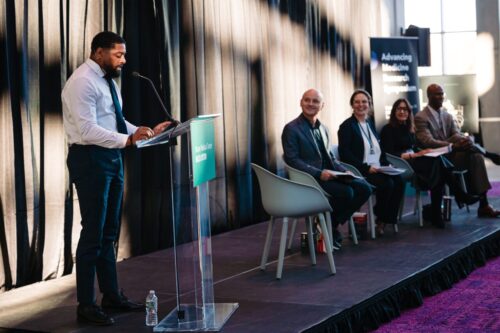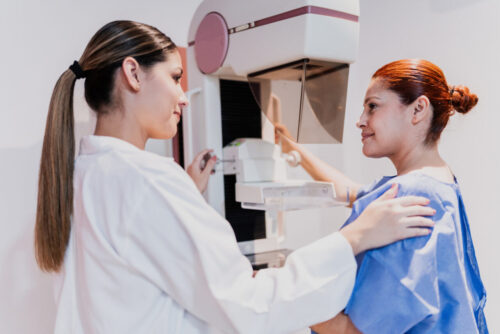Beyond the Scalpel: Surgeons Address Community Violence in Kansas City
February 24, 2020
By Meryl Bailey

Getty Images
Gunshot wounds are a common occurrence at trauma centers across the country, but at the University of Kansas Medical Center, trauma surgeons are treating more than their fair share. Gun violence is surging in Kansas City, with an average of nearly 620 shootings per year in the metro and surrounding areas. Kansas City, Missouri (the largest city in the metro) ranks fifth in the number of homicides per capita among major US cities. These numbers signify an urgent public health crisis that the medical community is eager to address. The statistics concern Robert Winfield, MD, FACS, the division chief of acute care surgery, trauma, and surgical critical care at the University of Kansas Medical Center (KUMC). Stemming the bleeding of gunshot wounds in the trauma bays does nothing to quell the continued violence in the community. Winfield, who has a deep research interest in structural inequality and interpersonal violence, is committed to mitigating shootings around the I-70 corridor that affect so many of KUMC’s patients. When a link to an organization called Socially Responsible Surgery (SRS) popped up on his Twitter feed, Winfield knew he had found likeminded partners in the work that KUMC was in the process of building. Uniting the field of surgery with social justice, SRS is a burgeoning nonprofit aimed at integrating social determinants of health (SDOH) into surgical training and practice. Through initiatives in education, research, and service, SRS brings surgeons beyond the operating room to focus on patient advocacy, injury prevention, and better surgical outcomes. As of this January, KUMC has joined SRS as its third chapter along with the University of California Davis and the founding program at Boston Medical Center (BMC). Winfield hopes SRS will provide a framework for KUMC’s efforts to address upstream causes of gun violence in the community as well as the rising rates of suicide by firearms in surrounding rural areas. Although Kansas state laws prohibit state employees, including physicians at KUMC, from advocating for restrictions on firearms, Winfield believes that root causes of violence run far deeper than accessibility to guns. “If I could wave a magic wand and make all guns in the United States disappear right now at this very moment, there would still be violence in our communities,” says Winfield. “So we’ve chosen to focus on the roots of violent behavior more so than the vector of a gun itself.” Map of homicides in Kansas City, 2019. Despite having to navigate tricky political waters, KUMC is providing institutional support to Winfield and his team to elevate the conversation on the impacts of gun violence on public health. The institution hosted the 2019 Kansas City Firearm Symposium, bringing together academia, the medical community, and survivors to discuss solutions. Winfield is also in the process of building a coalition of KUMC caregivers whose work is affected by violence or by firearm injury to come up with a series of initiatives designed to address violence in the region. He sees this work as the first arm in a series of service and research projects that the KUMC SRS chapter will undertake to address SDOH in the future, including food insecurity and housing instability, issues for which BMC has already laid out a successful roadmap, says Winfield. “Those issues are the sorts of things that drive violence, and we’re eager to partner in these efforts and address them in our community and others,” he says. SRS builds on a paradigm shift that is happening in medical communities throughout the country, where care providers work to prevent illness and disability by addressing social issues. Winfield sees SRS as a platform for KUMC medical students and surgical residents to improve the future of surgical practice. “The current group of medical students view the world a little bit differently,” observes Winfield. “Previous generations were just focused on delivery of interventions, but medical students and residents who are coming through right now think more about social factors that are related to healthcare outcomes. I think they’re going to jump onto this.”
Gunshot wounds are a common occurrence at trauma centers across the country, but at the University of Kansas Medical Center, trauma surgeons are treating more than their fair share. Gun violence is surging in Kansas City, with an average of nearly 620 shootings per year in the metro and surrounding areas. Kansas City, Missouri (the largest city in the metro) ranks fifth in the number of homicides per capita among major US cities. These numbers signify an urgent public health crisis that the medical community is eager to address.
The statistics concern Robert Winfield, MD, FACS, the division chief of acute care surgery, trauma, and surgical critical care at the University of Kansas Medical Center (KUMC). Stemming the bleeding of gunshot wounds in the trauma bays does nothing to quell the continued violence in the community. Winfield, who has a deep research interest in structural inequality and interpersonal violence, is committed to mitigating shootings around the I-70 corridor that affect so many of KUMC’s patients. When a link to an organization called Socially Responsible Surgery (SRS) popped up on his Twitter feed, Winfield knew he had found likeminded partners in the work that KUMC was in the process of building.
Uniting the field of surgery with social justice, SRS is a burgeoning nonprofit aimed at integrating social determinants of health (SDOH) into surgical training and practice. Through initiatives in education, research, and service, SRS brings surgeons beyond the operating room to focus on patient advocacy, injury prevention, and better surgical outcomes.
As of this January, KUMC has joined SRS as its third chapter along with the University of California Davis and the founding program at Boston Medical Center (BMC). Winfield hopes SRS will provide a framework for KUMC’s efforts to address upstream causes of gun violence in the community as well as the rising rates of suicide by firearms in surrounding rural areas. Although Kansas state laws prohibit state employees, including physicians at KUMC, from advocating for restrictions on firearms, Winfield believes that root causes of violence run far deeper than accessibility to guns.
“If I could wave a magic wand and make all guns in the United States disappear right now at this very moment, there would still be violence in our communities,” says Winfield. “So we’ve chosen to focus on the roots of violent behavior more so than the vector of a gun itself.”
Despite having to navigate tricky political waters, KUMC is providing institutional support to Winfield and his team to elevate the conversation on the impacts of gun violence on public health. The institution hosted the 2019 Kansas City Firearm Symposium, bringing together academia, the medical community, and survivors to discuss solutions. Winfield is also in the process of building a coalition of KUMC caregivers whose work is affected by violence or by firearm injury to come up with a series of initiatives designed to address violence in the region. He sees this work as the first arm in a series of service and research projects that the KUMC SRS chapter will undertake to address SDOH in the future, including food insecurity and housing instability, issues for which BMC has already laid out a successful roadmap, says Winfield.
“Those issues are the sorts of things that drive violence, and we’re eager to partner in these efforts and address them in our community and others,” he says.
SRS builds on a paradigm shift that is happening in medical communities throughout the country, where care providers work to prevent illness and disability by addressing social issues. Winfield sees SRS as a platform for KUMC medical students and surgical residents to improve the future of surgical practice.
“The current group of medical students view the world a little bit differently,” observes Winfield. “Previous generations were just focused on delivery of interventions, but medical students and residents who are coming through right now think more about social factors that are related to healthcare outcomes. I think they’re going to jump onto this.”


